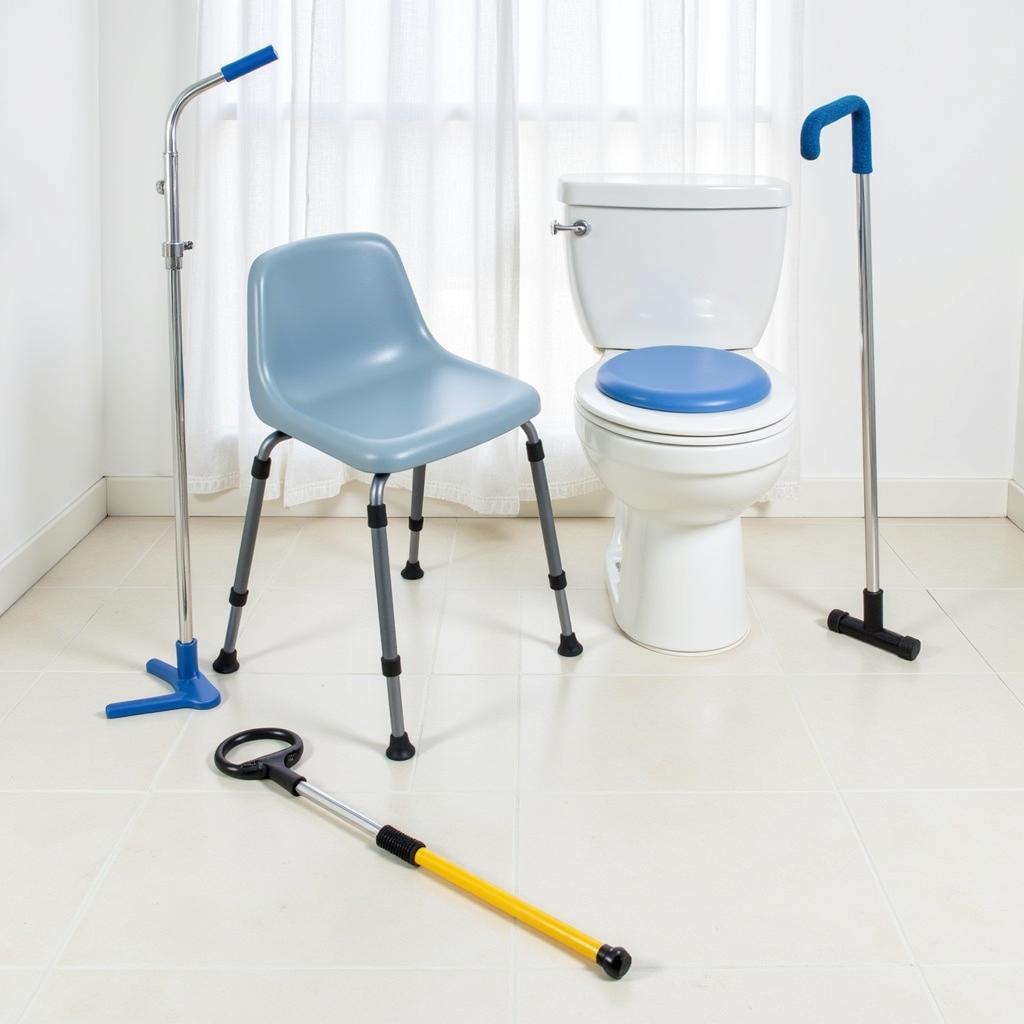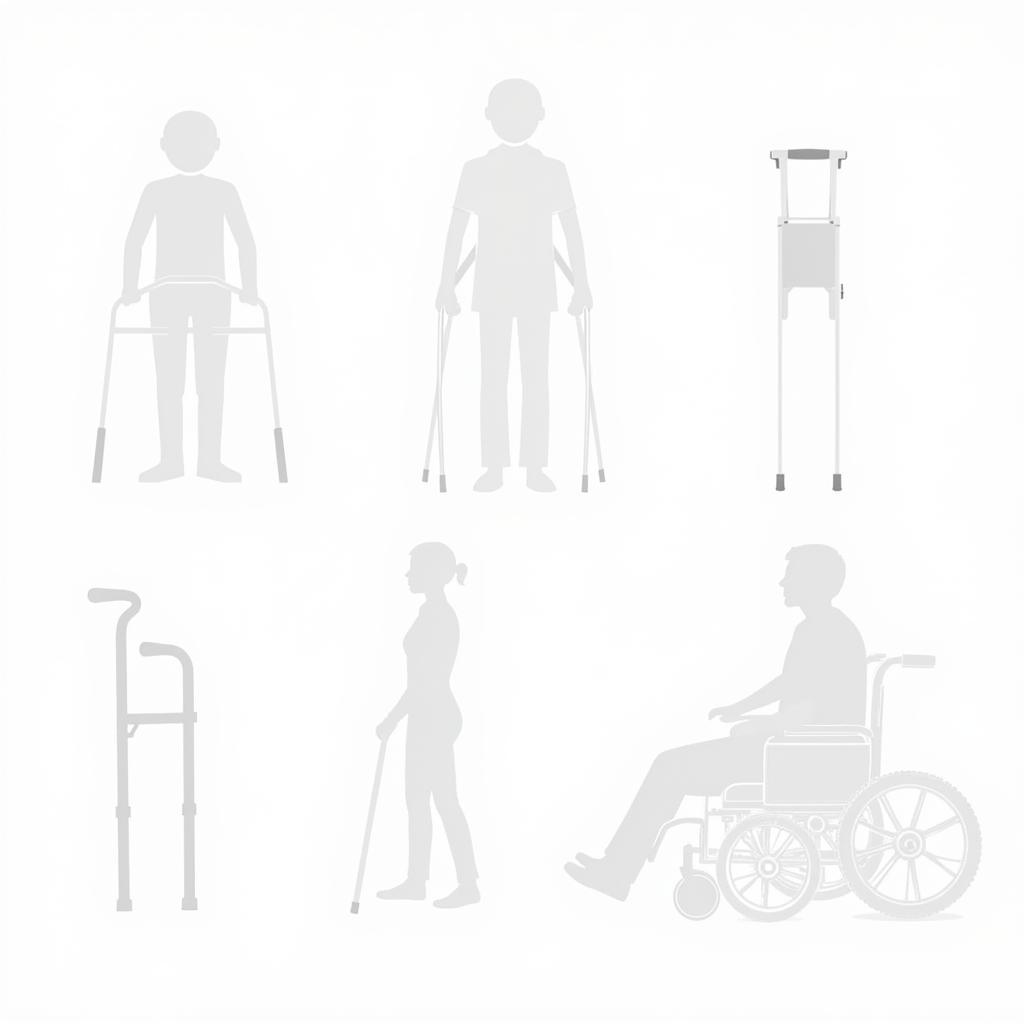Recovering from surgery can be challenging, and having the right after surgery home care tools can significantly impact your comfort and healing process. This comprehensive guide will explore essential tools and equipment that can aid in your post-operative recovery, helping you regain independence and improve your overall well-being.
Choosing the Right After Surgery Home Care Tools
Selecting appropriate home care tools after surgery depends on various factors, including the type of surgery, your individual needs, and recommendations from your healthcare provider. Remember, what works for one person may not work for another. It’s crucial to discuss your specific needs with your doctor or physical therapist to determine the most suitable tools for your situation.
 Essential Home Care Tools for Post-Surgery Recovery
Essential Home Care Tools for Post-Surgery Recovery
Mobility Aids: Regaining Independence
Mobility aids can be invaluable after surgery, especially if your mobility is limited. These tools can help you move around safely and reduce the risk of falls. Common mobility aids include:
- Walkers: Provide stability and support while walking.
- Crutches: Offer support for one or both legs.
- Canes: Assist with balance and reduce strain on the affected area.
- Wheelchairs: Offer complete mobility for those unable to walk.
 Mobility Aids for Post-Surgery Recovery
Mobility Aids for Post-Surgery Recovery
Bathroom Safety: Preventing Accidents
The bathroom can be a hazardous area after surgery, due to limited mobility and potential dizziness. Essential bathroom safety tools include:
- Shower chairs or benches: Provide a safe and stable place to sit while showering.
- Raised toilet seats: Make it easier to sit down and stand up from the toilet.
- Grab bars: Offer support and stability while getting in and out of the shower or tub, or using the toilet.
- Non-slip mats: Prevent slips and falls in the shower or on the bathroom floor.
Adaptive Equipment: Simplifying Daily Tasks
Adaptive equipment can make everyday tasks easier and less strenuous during recovery. Examples include:
- Reacher grabbers: Help you pick up objects without bending or straining.
- Dressing sticks: Assist with putting on and taking off clothes.
- Long-handled shoehorns: Help you put on shoes without bending over.
- Button hooks: Make it easier to fasten buttons.
Managing Pain and Discomfort
Post-surgical pain is common, and managing it effectively is essential for a smooth recovery. Discuss pain management strategies with your doctor, which may include medication, ice packs, and elevation of the affected area.
“Proper pain management is crucial for post-surgical recovery,” says Dr. Emily Carter, a leading rehabilitation specialist. “It not only reduces discomfort but also allows patients to engage in necessary physical therapy and daily activities, promoting faster healing.”
The Importance of Rest and Nutrition
Adequate rest and proper nutrition are vital for healing and recovery after surgery. Follow your doctor’s instructions regarding activity levels and dietary restrictions.
“Nutrition plays a key role in tissue repair and overall recovery,” adds registered dietitian, Sarah Miller. “A balanced diet rich in protein, vitamins, and minerals can significantly enhance the healing process.”
Conclusion: Ensuring a Comfortable and Safe Recovery with After Surgery Home Care Tools
Investing in the right after surgery home care tools can make a significant difference in your recovery journey. By carefully selecting the appropriate tools based on your specific needs and following your healthcare provider’s recommendations, you can ensure a more comfortable, safe, and efficient recovery. Remember to prioritize rest, nutrition, and pain management for optimal healing.
FAQ
- How do I choose the right mobility aid?
- What are the essential bathroom safety tools?
- How can adaptive equipment help me?
- What are the key considerations for pain management?
- Why are rest and nutrition important for recovery?
- Where can I find more information about care transitions network’s risk stratification tool?
- What types of adaptive equipment are available for dressing?
Need help with your after-surgery home care? Contact us via WhatsApp: +1(641)206-8880, Email: [email protected], or visit us at 910 Cedar Lane, Chicago, IL 60605, USA. Our 24/7 customer support team is here to assist you.

Leave a Reply